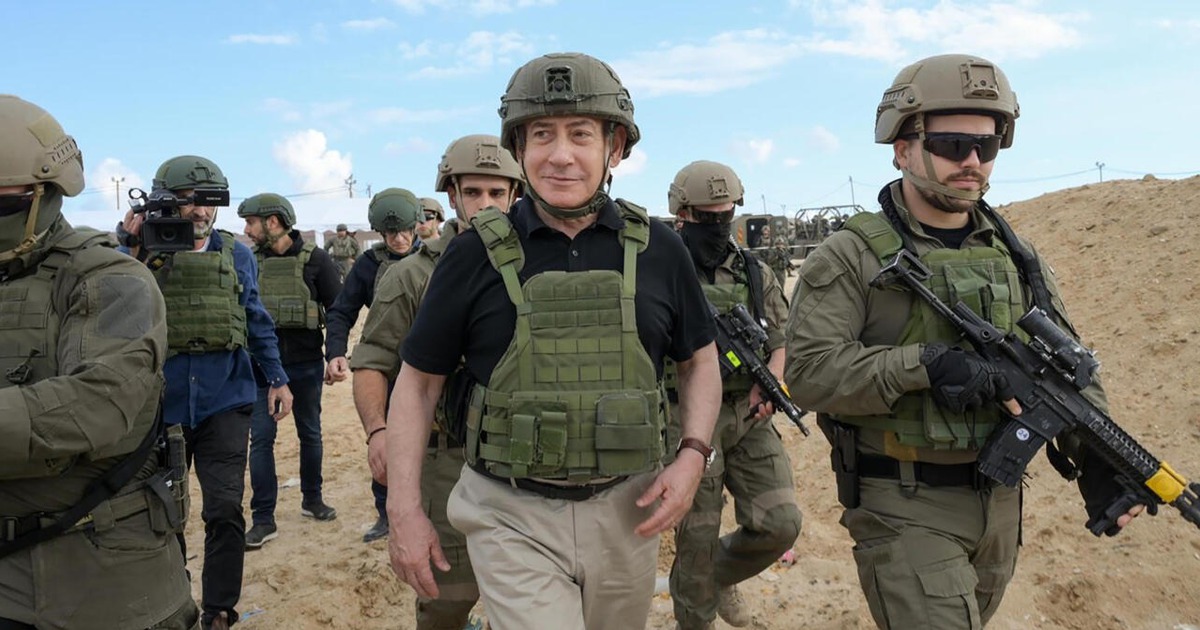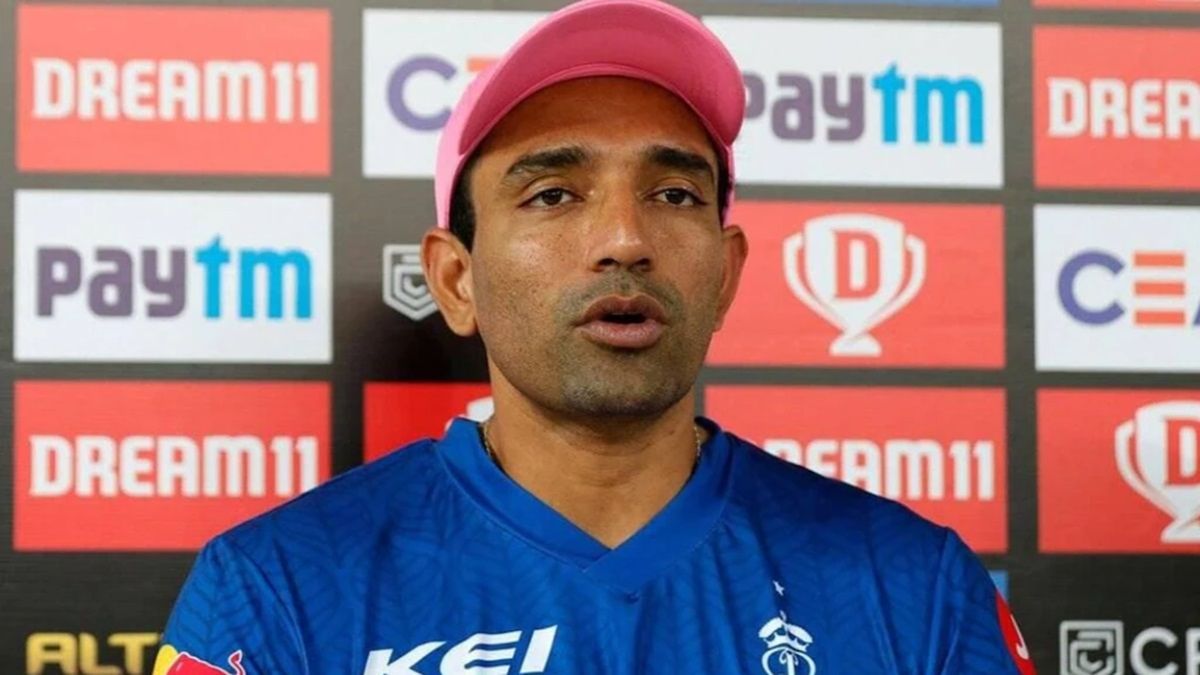Humanitarian aid and essential supplies for the survival of the Palestinians that Israel allows to reach Gaza are at annual lows, according to data from the Israeli authorities themselves, when the one-month deadline set by Washington for the Benjaminite Government is met. Netanyahu will ease the blockade and improve the living conditions of Gazans. Meanwhile, hundreds of thousands of inhabitants suffer, especially in the north of the enclave, from attacks by Israeli troops and expulsion orders from the areas where they live poorly.
The Israeli Government reported this Monday that it had sent “hundreds of food packages and thousands of liters of water” to a territory with 2.3 million inhabitants. Despite pressure from the United States, the main ally and arms supplier, and other countries, “Israel has systematically failed to fulfill its legal obligation to provide adequate humanitarian support for civilians in Gaza,” which “has caused conditions close to famine.” for 800,000 Palestinian civilians,” according to a statement this Tuesday from eight humanitarian organizations. “People are dying of hunger” and in the midst of “Israeli military operations they have been denied critical food aid and basic needs”, especially in the northern area, adds the text signed by, among others, Oxfam, Save the Children, the Council Norwegian Refugee Association and Refugees International.
According to the Israeli authorities, during October 33,844 tons of aid have entered the Strip, a far cry from the 137,137 in April or even the 65,308 in February, the second month with the least amount recorded in the 2024 statistics. So far in November , Israel has facilitated the passage of 12,566 tons. 79% of that aid is food, about 7% is material for shelters, almost 5% is water, and the same percentage is medical supplies and fuel. These are data published on their website by the Israeli authority of the Coordination of Government Activities in the Territories (COGAT), which supervises civil activity in occupied Palestine.
Israel recognizes that it has not complied with the demands set by Washington, which gave the Government a month to act. An Israeli official said Monday that authorities have implemented “most” of Washington’s demands, but that there are pending issues that depend on security, according to The Times of Israel. The Administration headed by President Joe Biden sent a letter to the Israeli Executive on October 13 in which it urged it to improve humanitarian conditions in the Strip under threat of possible restrictions on the shipment of weapons. The deadline has expired after the victory of the Republican candidate, Donald Trump, in the presidential elections, and although his inauguration will not take place for two months, the change in the White House is already planning on the conflict.
Since the beginning of October, the north of the Gaza Strip has been the scene of an offensive that seeks, according to military sources cited by the newspaper Haaretzexpel all Gazans to the south. Part of that strategy is supposedly using hunger and lack of aid as a weapon, in addition to ground and air attacks. In the 13 long months of war, more than 43,000 Gazans have died and of the 2.3 million inhabitants of the enclave, 1.9 remain displaced, according to the UN, which warns that famine is stalking the northern area. In addition, 101 Israeli hostages remain in Gaza of the 250 kidnapped on October 7, 2023, when the war began with the Hamas-led massacre of some 1,200 people in Israeli territory.
The UN agency for Palestinian refugees (UNRWA) denounced on Saturday that Israel only allows the arrival of 30 trucks a day, which means 6% of the aid the population needs. The Famine Review Committee (FRC) has issued an alert about “an imminent probability” of famine in the Strip.
During October, Israeli authorities prevented 43% of humanitarian operations in Gaza and 16% had problems being blocked or delayed, according to the United Nations Office for the Coordination of Humanitarian Affairs (OCHA). 37% of the operations could be carried out without problems, according to that agency.
The most critical situation is in the north, where access to aid is “extremely limited,” adds OCHA, after 98 attempted coordinated operations with Israeli forces inside the Strip, 85% were denied or prevented and Only 98 could pass without problems through the checkpoint that divides the enclave. Jabalia, Beit Lahia and Beit Hanun are the three main focuses in the far north of the Israeli military operation and the humanitarian blockade imposed.
Israel reported this Tuesday of the opening of the Kissufim crossing, which will allow aid to be brought to the center and south of the enclave, and, on Monday, of the sending to Beit Hanun (north of the Strip) of “hundreds of food packages and thousands of liters of water” in an operation coordinated with international organizations that does not specify. This shipment joins the “effort” deployed last week of 11 trucks of food, water and medical supplies to the Yabalia camp. Washington demands that its ally enter 350 trucks every day, a figure that Israel is not in a position to achieve, according to the media. Axios citing official sources of the Jewish State. Before the war, about 500 trucks a day entered the Palestinian enclave.
The security cabinet headed by Netanyahu decided on improvements on Sunday, according to local press, such as expanding the humanitarian zone of Al Mawasi, in the south, to where the military is expelling the population of the north.
Israel controls the entire territory of Gaza by land, sea and air and it is its military and civil authorities that decide any operation that takes place, from attacks to population movements or the arrival of aid and supplies. COGAT tries to hold the UN or the humanitarian organizations deployed in the Strip responsible.
This Monday, this Israeli organization showed images of an esplanade where, it states, the equivalent of some 900 trucks of humanitarian aid wait to be picked up on the Palestinian side of the Kerem Shalom pass, next to the border with Egypt. But it is an area under Israeli military control where neither UN agencies nor NGOs act without permission from the occupation army. All these aid packages, furthermore, are accumulating at the opposite end of where the famine lurks and where the troops are pressing with more determination, which is in the north.









